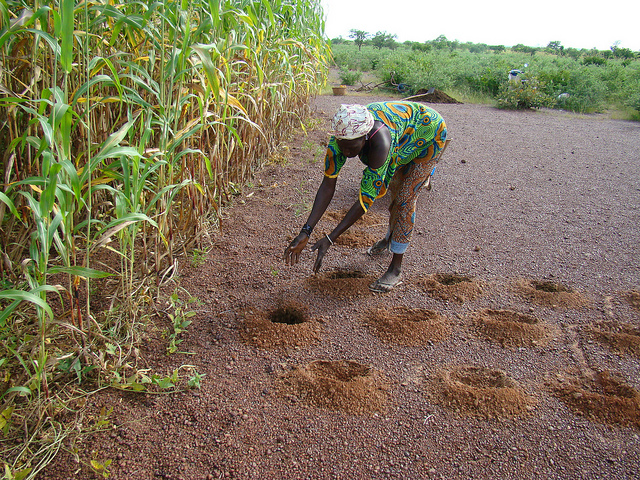
Source: CGIAR
If you didn’t get a chance to join the first phase of consultation on the CGIAR Strategy and Results Framework (SRF) or wanted to continue to follow how things are progressing with it and continue to have your voice heard- a second phase of consultation is beginning!
To find out more about how to participate -see the SRF Consultation Phase 2 page. And to hear a bit about why you should consider participating, let us tell you a story about how 250 voices from the first phase have been heard.
SRF Consultation Phase 1 results were heard
During 14th-16th January 2015 a diverse group of donors and their advisors met with representatives of the Independent Science and Partnership Council (ISPC), Consortium Board (CB), Consortium Office (CO), CGIAR Centers and CGIAR Research Programs(CRP) in Bern, Switzerland. The purpose of the meeting was to discuss and agree on necessary revisions towards the finalisation of the CGIAR Strategy and Results Framework (SRF).
As part of these discussions, the participants heard and considered the contributions by stakeholders-both internal and external(85%) to CGIAR- made during the SRF Consultation Phase 1.
The SRF Consultation is being organised and implemented by GFAR and the Consortium Office as part of a longer term engagement process of the third Global Conference on Agricultural Research for Development (GCARD3).
The results of Phase 1 of the SRF Consultation were made available after the end of the consultation phase on December 12th 2014 on an SRF Results page. And now the Summary Document and Summary Slides which were submitted to the Bern meeting are also available on there.
According to Wayne Powell, Chief Science Officer at the Consortium Office, who is leading a lot of the work on the SRF and attended the meeting: “The contributions received during the SRF Consultation were and are being used, particularly the in-depth feedback given on the Vision and Mission, which has been very helpful.”
Frank Rijsberman, CEO of the CGIAR Consortium, also attended the Bern meeting and had this to say:
“The results were definitely used in the Bern workshop. The donors and the centers revised the SRF taking into account all comments received, and the clear views of the stakeholders were a key component of the feedback that has led to quite significant changes to the SRF, which are reflected in the next version.”
So moving forward, a revised SRF is now available (here) as well as an opportunity to still have a say in a second phase of the SRF consultation- before the Consortium Board and then the Funders Council sign off on it, in March and April, respectively.
Phase 2 SRF Consultation – join in the discussions
This second Phase of consultation will focus more broadly on how the whole SRF has been articulated and how well it reflects a good roadmap for effective agricultural research for development for CGIAR. Please find the latest version of the SRF here.
And again it is imperative that we hear voices from stakeholders around the world on how the SRF can still be strengthened to achieve this. During the month of February 2015 there will be a number of opportunities to discuss and share thoughts and ideas on how the SRF can be improved.
Opportunities to participate in this Phase include the following:
- submit any responses via email to partnerships@CGIAR.ORG.
- have your say and also comment on what others have to say in the ‘public chat room’
- join a webinar session during a series of ‘Call-in Program’ on particular aspects of the SRF- where you can discuss ‘in person’ with other stakeholders and some of those involved in developing the SRF [Note-only 20 seats per webinar and sign up required]. To find out more details about the webinars-please visit the SRF Consultation-Phase 2 page.
We look forward to hearing from many of you towards further strengthening the Strategy and Results Framework to guide us towards impactful agricultural research for development.
Photo credit: M. Tall (CCAFS West Africa)
